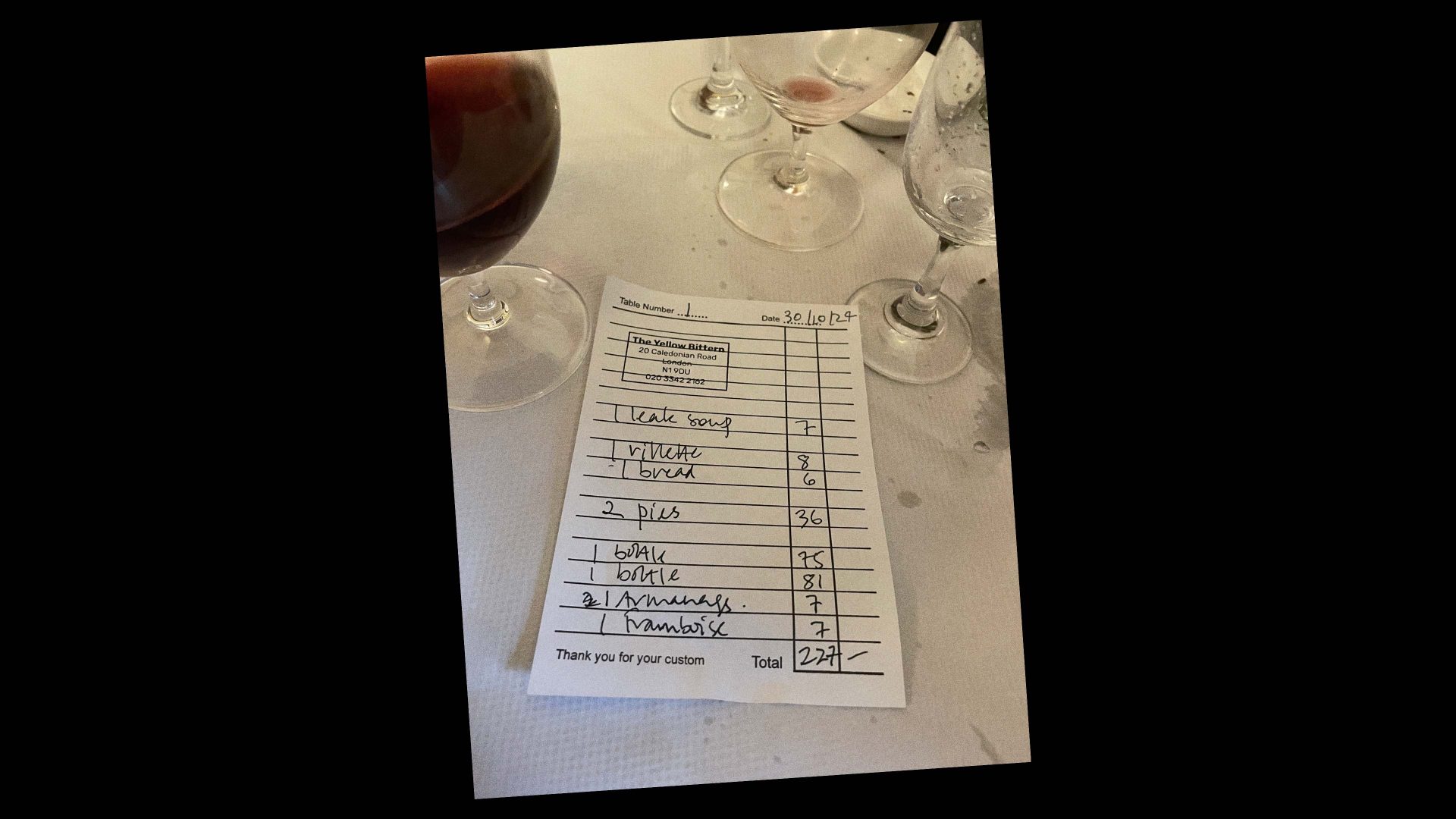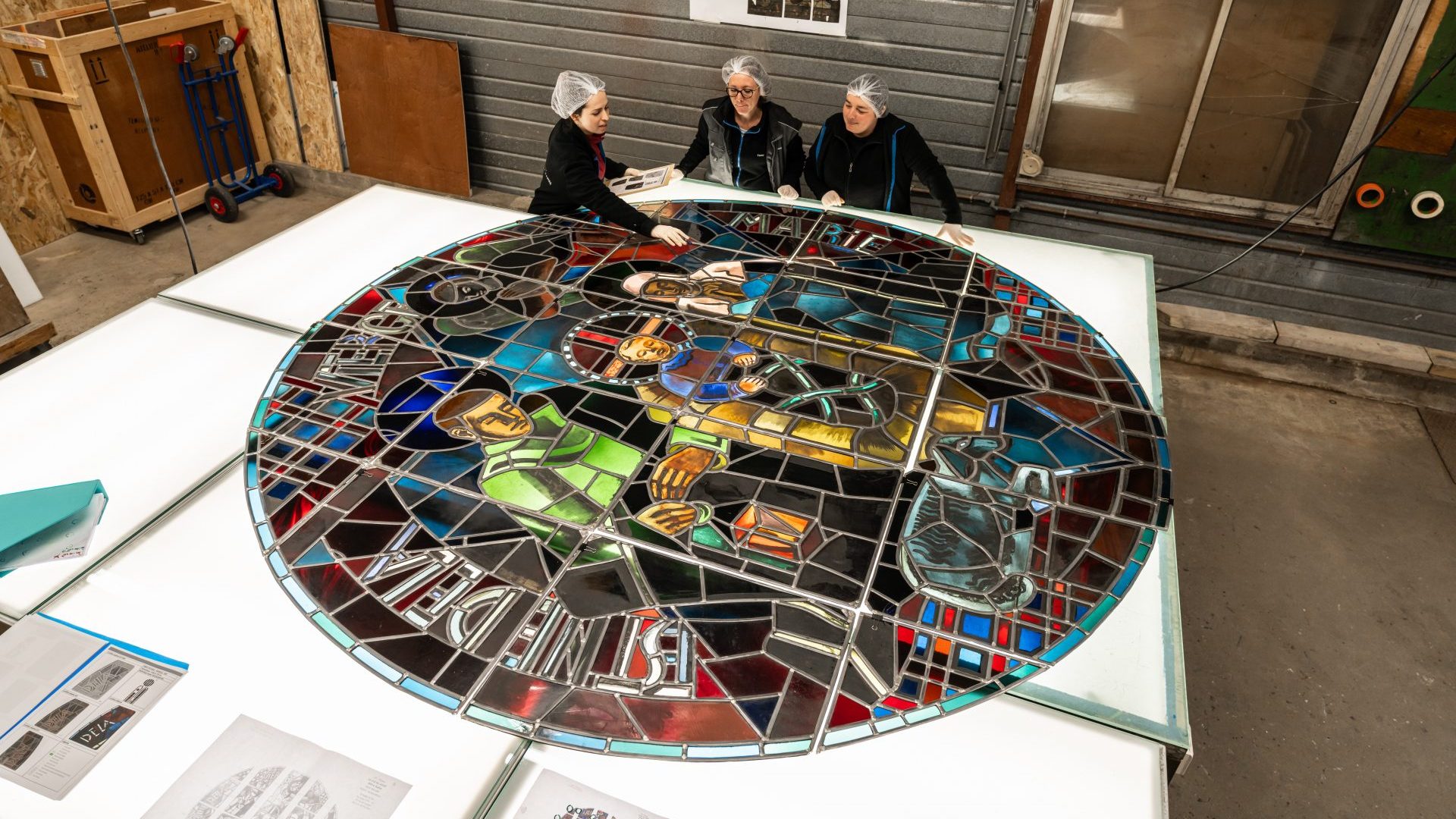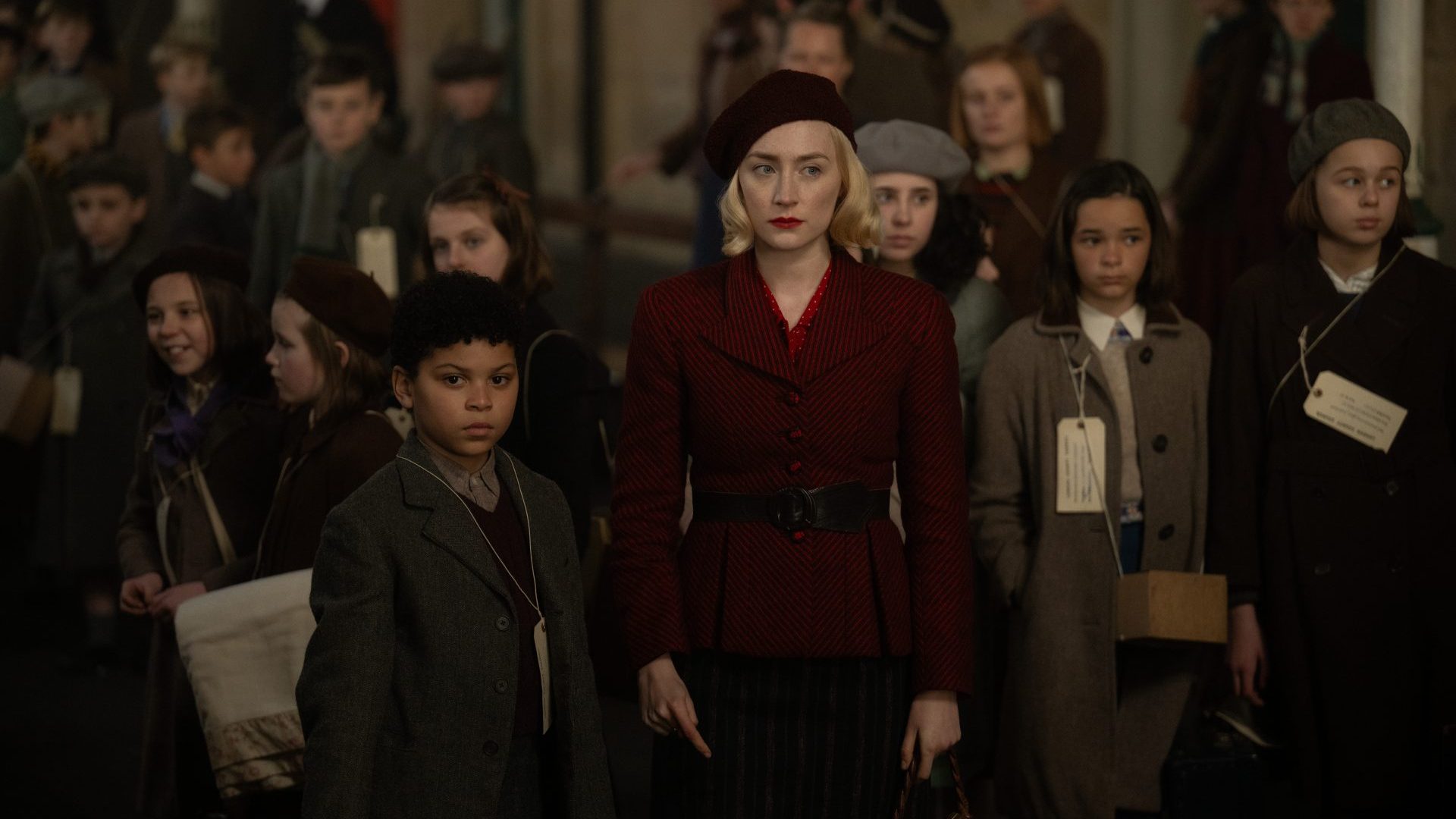Without the help of a more organised friend I would have been unable to visit the Yellow Bittern, a British-Irish bistro on the Caledonian Road, near King’s Cross station. I cannot find my bank card and you can only pay with cash.
Booking the restaurant, open for lunch at midday for the first sitting and at 2pm for the second, requires a telephone call, or else sending a postcard, a practice the founders enjoy because they are old fashioned and bookish. Probably it is romantic.
Since it is now 2024, I can forgive anyone for supposing the whole exercise might be a little contrived. Maybe it is.
It is also wonderful in a world being taken over by Elon Musk’s terrible sex robots. Apparently they will watch you while you sleep to make sure you’re OK. Of course I’ve no doubt at all it won’t be too long before they murder you in the night.
The Yellow Bittern, then. Taking the time to reserve a table and to go is entirely worthwhile. You arrive at a window full of books, some by Keith Floyd, others by Virginia Woolf. On display currently is one called Prison Paintings by Michael Quanne and another by Arnold Bennett – yes, he the omelette man – who wrote Anna of the Five Towns, the first in a series of novels set in the Potteries.
On one of north London’s busier streets, awash with Deliveroo riders, drug dealers and the omnipresent chain of commuters in crisp Next shirts, you ring the bell. One of the owners, Frances von Hofmannsthal, is likely to be the one to let you in. She is the founder of the cultural magazine Luncheon and is the youngest daughter of the late Lord Snowdon.
Manning the kitchen at the back, the Northern Irish chef Hugh Corcoran, wearing minute circular spectacles and almost certainly an apron. He trained in Paris and the Basque region of Spain before decamping to London. If he sounds like he’s aboard the Fergus Henderson train, you’d be correct.
The welcome when I went in was warm and a little chaotic, which is how I like it. It feels as if you are on holiday on the continent: there isn’t any sense of stress whatsoever, only the gentle offer of food and wine. A bit like a house in rural Italy or Ireland: part-home, part-restaurant.
Those with a short wait for their table might be guided downstairs to the basement, where a casual bookshop has been installed. Paintings and photos of Samuel Beckett fill the walls. The walls, not puzzlingly, are a light yellow. I can’t be bothered to write about the poem the place is named after because I hadn’t heard of it and would feel silly.
Then again, inside, the clientele when I was in for lunch most likely had. They proved to be distinctly upmarket – in that shabby sort of way. The type of people whose parents own grand townhouses in Islington but retain, thanks to summers in the city and a willingness to avoid being typecast, a slight London twang.
They will have absolutely read a six-book series set in the Potteries; they will have enough money to buy one, even two bottles of wine – the price of which exceeds £50 and then some. It might be natural wine, it might not. It will all be very good.
Anyway, what I enjoyed more than anything was the carefree nature of it all: calm but disjointed, quite funny and a platform on which to drink, feast, chat, wonder; a heaven to anyone of the Luddite persuasion. To be free of the shackles of the modern day. And even though the restaurant will encourage influencers en masse, generally the technophiles of the world would loathe this place. I’m glad to have found somewhere to relax.
More than anything, it’s the food. On the menu last week, vegetable soup – I was told that it was blitzed before, but it wasn’t this day, happily – and soda bread with quality butter. There was also a pork rillette which came with lots of cornichons and a single silverskin onion.
Corcoran berated me for leaving two beans in my soup bowl when he came to clear because he had grown them himself in his garden – “what is wrong with those two beans?” he asked – so I plucked them up and ate them before he went away. He didn’t seem to mind what some might perceive to be poor manners. My dining companion was aghast.
Then came cottage pie, the likes of which I haven’t encountered in years. Top-level grandmother cooking on a cold day: unfathomably buttery and rich, soft potatoes over the richest of beef, a few little kidneys for good measure, all deep and heartily seasoned. The top was elegant and crisp.
And this with a red wine – I’m sure there are cheaper options, by the way – is a force to be reckoned with. As is the Yellow Bittern, a brilliant place to have lunch, a counterbalance to an all too often, disastrously boring modern world.




